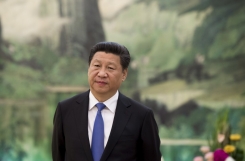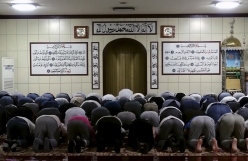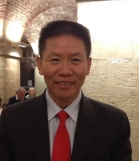Catholic leaders have pledged to "make the cross flourish throughout China" following the removal of more than 1,200 crosses from churches in Zhejiang province.
"Each time they take a cross down, we will put more up," one church leader told the Guardian at a protest on Friday. "We are even considering making flags and clothes with cross patterns. We will make the cross flourish throughout China."
The crackdown on churches in China has been widely reported over the past year. The majority of those that have had their crosses forcibly removed or that have been torn down completely have been in Zhejiang, on the east cost of the country. A significant number were state-sanctioned buildings, and many located in the city of Wenzhou – known as the 'Jerusalem of the East' because of its large Christian population.
It was in Wenzhou that an estimated 20 church leaders gathered on Friday to protest what many Chinese Christians see as a curtailment of their religious freedom by the Communist government (CPC). According to the Guardian, the group held a banner outside a government building in the city that read: "Maintaining religious dignity and opposing the forced removal of crosses".
One of those demonstrating claimed that the CPC wanted to turn Christianity "into a tool that serves the party", and compared the demolition campaign to the Cultural Revolution of 1967 - 1976, when under then-leader Chairman Mao religious persecution intensified.
The protestor's allegations were backed up by Bob Fu, president of Texas-based non-profit China Aid, in an interview with Christian Today last week. He estimated that around 1,500 churches had been demolished or had their crosses taken down in Zhejiang, a move which he said was "unprecedented".
"It is the first time this has happened since the Cultural Revolution," Fu added.
He said that the Church has contributed significantly to the stability of society in China, most notably through its charitable work, but "it is the nature of the Communist Party that it will not tolerate competition for minds and hearts."
In an effort to curb the influence of Christianity, China last year announced plans to nationalise Christian theology. During an anniversary celebration of the founding of the state-run protestant church, the Three-Self Patriotic Movement, a government official said China's own brand of theology would "adapt to China's national condition and integrate with Chinese culture".
Fu explained: "Christianity has grown so fast that Christians outnumber Communist Party members. The whole purpose of this is to control the 'overheated' growth of Christianity. They are nervous not just about Christianity but of any organised civil group."


















